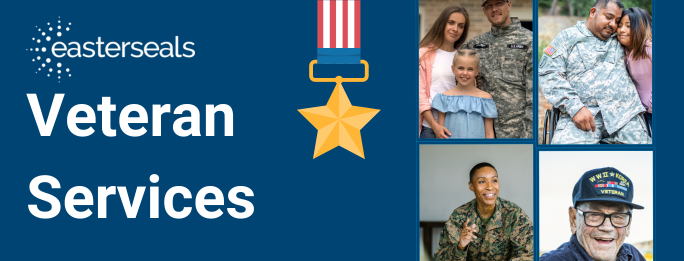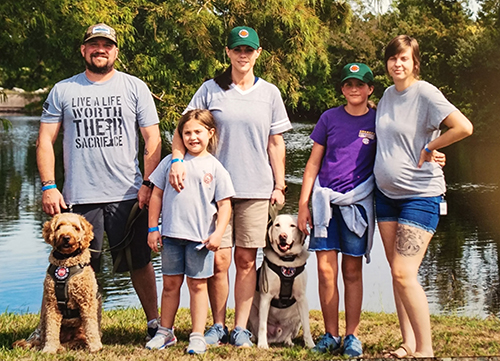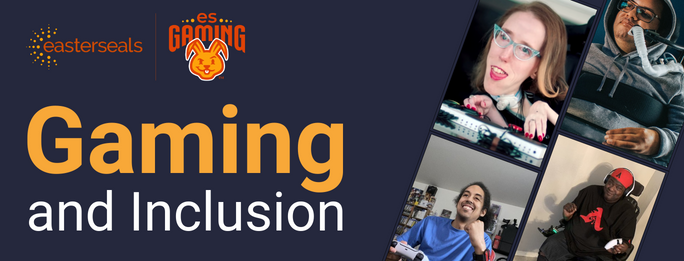
Are You a Caregiver?
Are you being neighborly by checking in on the widow who lives next door? Are you handling your aging mother's bills? Do you take your grandfather to the grocery store once a week? If so, you are a caregiver.
 Although there are many paid sources of help, Easterseals’ focus is on unpaid or informal caregiving, which accounts for the majority of all care provided.
Although there are many paid sources of help, Easterseals’ focus is on unpaid or informal caregiving, which accounts for the majority of all care provided.
There are many types of caregivers, because the term caregiver refers to anyone who provides help to another person in need. This may be a few hours a week, or full-time, live-in support. The person being cared for may live at home, with you, or with another friend or family member, or in a residential facility. The person receiving care may have a disability, such as dementia, cancer or brain injury, or may just need a little help with basic daily tasks.
Some tasks might include:
- Running errands
- Paying bills
- Shopping
- Transportation to doctor appointments
- Preparing meals
- Helping to get ready for outings
Some caregivers also have the added responsibilities of administering medications and tasks related to the older person’s illness or disability.
Oftentimes, caregivers already have a relationship with the person or persons they are caring for, like a loved one’s parents,
children, spouse, another family member, neighbor or friend.
Informal or unpaid caregivers are the primary source of care for nearly three-quarters of the older adults with limitations who live in the community. These caregivers are usually family members. The most common type of informal caregiving relationship is an adult child caring for an elderly parent.
Other types of caregiving relationships include:
- Adults caring for other relatives, such as grandparents, siblings, aunts, and uncles
- Spouses caring for elderly husbands or wives
- Middle-aged parents caring for adult children with severe disabilities
- Adults caring for friends and neighbors
- Children caring for a parent or elderly grandparent with a disability
Older adults who are recipients of caregiving experience a variety of conditions including:
- Dementia
- Diabetes
- Stroke
- Sensory losses
- Heart problems
- Changes in mental health statuses








 “Streaming is both accessible and not accessible,” Evans said. “The streaming part itself is accessible, in that it allows me to make my own schedule, and I can work it around my disabilities. However, the inaccessible part is the demand for content creators to constantly be networking, attending events and continuously pushing out content. I cannot attend events, and if I can they’re incredible stressful, so all my work networking has basically been done online, which thankfully is becoming a more acceptable side of content creation.”
“Streaming is both accessible and not accessible,” Evans said. “The streaming part itself is accessible, in that it allows me to make my own schedule, and I can work it around my disabilities. However, the inaccessible part is the demand for content creators to constantly be networking, attending events and continuously pushing out content. I cannot attend events, and if I can they’re incredible stressful, so all my work networking has basically been done online, which thankfully is becoming a more acceptable side of content creation.” “I must say over the years it has become less and less accessible for me,” Martínez said. “SMA (Spinal Muscular Atrophy) causes strength, endurance and mobility loss as time passes. I can’t use a physical keyboard as I used to, so it’s been years now with an on-screen keyboard. Voice dictation doesn’t work well for me due to my voice being inconsistent, not to mention my accent. In English it can go from totally wrong to acceptable. In Spanish, my native language, it works better.”
“I must say over the years it has become less and less accessible for me,” Martínez said. “SMA (Spinal Muscular Atrophy) causes strength, endurance and mobility loss as time passes. I can’t use a physical keyboard as I used to, so it’s been years now with an on-screen keyboard. Voice dictation doesn’t work well for me due to my voice being inconsistent, not to mention my accent. In English it can go from totally wrong to acceptable. In Spanish, my native language, it works better.” “What drew me to consulting was the opportunity to leverage my unique perspective as both an able-bodied and disabled gamer to improve the gaming experience for others,” Lane said. “I can share the frustrations I’ve faced as a disabled gamer and use that knowledge to advocate for better accessibility features. Companies and studios that I work with go the extra mile to make sure I have everything I need to succeed.”
“What drew me to consulting was the opportunity to leverage my unique perspective as both an able-bodied and disabled gamer to improve the gaming experience for others,” Lane said. “I can share the frustrations I’ve faced as a disabled gamer and use that knowledge to advocate for better accessibility features. Companies and studios that I work with go the extra mile to make sure I have everything I need to succeed.”



Connect with us on social media